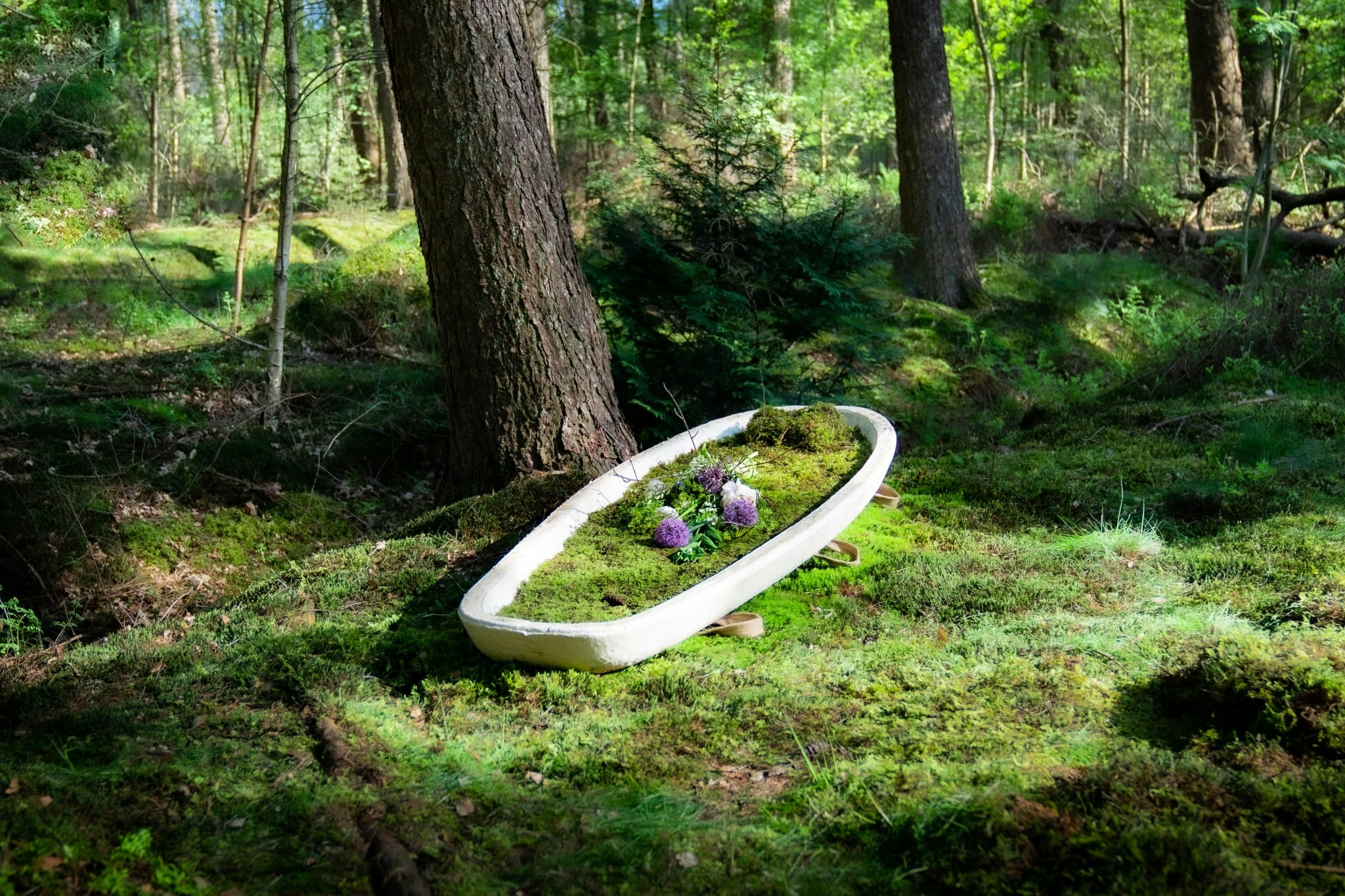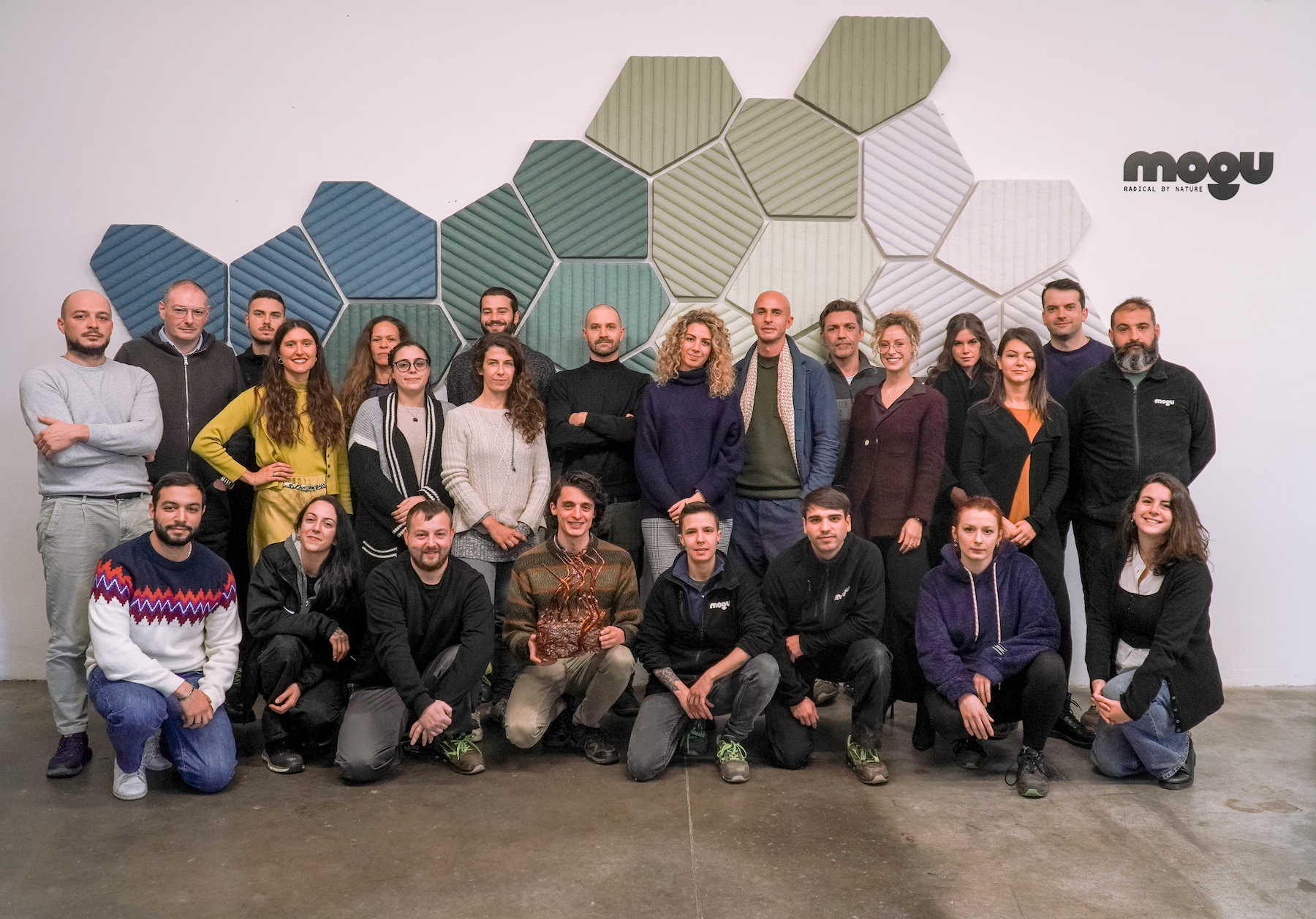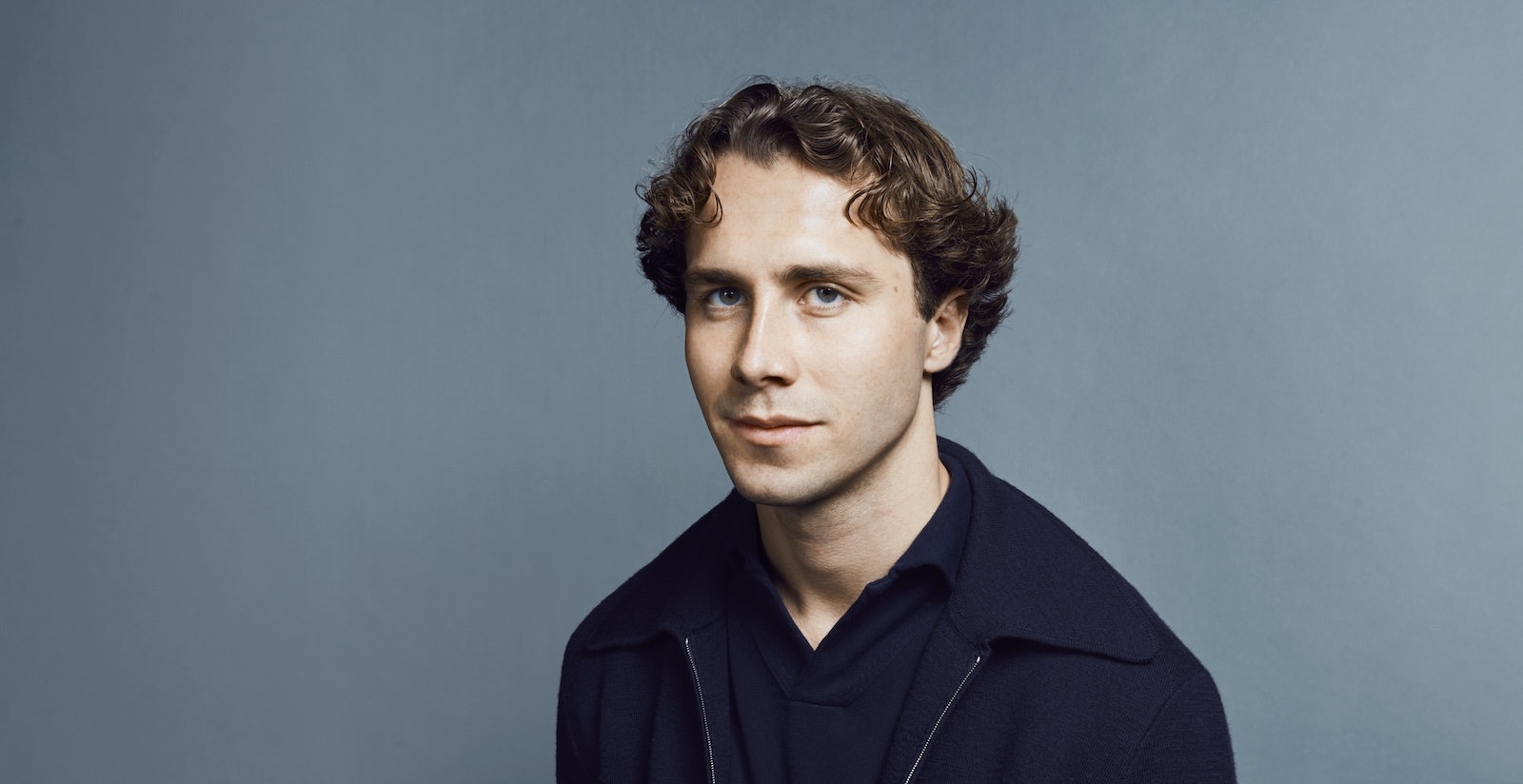When Bob Hendrikx was showing off the world’s first fungus-based ‘living house’ project he had built at Dutch Design Week in 2019, he fielded one bizarre but career-changing question.
“Someone came over and asked me, ‘what happens if my grandma dies in your home?’” he tells Sifted. Midway through his reply, which explained how mycelium — the root-like networks of strands that underpin mushrooms, the fungus’s fruiting body — naturally recycles organic matter into plant food and “allows new life to flourish,” inspiration struck.
‘“I thought, ‘Oh my God, this is what the organism has been telling me all along’,” he says — and so began his biodegradable coffin company, Loop Biotech.
Netherlands-based Loop Biotech says it is helping people enrich nature upon their death rather than increase their carbon footprint through its coffins and urns made from mycelium and upcycled hemp.
He’s not the only founder using mycelium to innovate industries in surprising ways — and investors are paying attention.
According to Dealroom, startups in the space set a new record for funding across Europe last year with $88.5m raised, more than double 2022’s total. Mycelium alt meat company Infinite Roots recently raised Europe’s biggest mycelium round so far with $58m, and the size of the mushroom-tech market is predicted to grow to $1.14bn by 2028.
And, while food feels like the obvious sector for mushrooms to branch their mycelium into, fungal tech is also laying down roots across a range of other industries, from product packaging to high-end fashion.
Magic mushrooms
You might be wondering why we need coffins made out of mushrooms, given that the traditional wooden type gets decomposed by fungus anyhow. But the production of coffins and urns harms the environment, says Hendrikx, particularly as it involves harvesting trees that have grown for decades and treating them with chemicals that pollute the soil.
It also, he says, slows down the natural order of life and death.
”The body wants to decay… Ideally, you would die and go and lie in a forest,” he says, adding that a wooden coffin can take years or even decades to decompose. “You’re withholding your nutrients from the environment.”

Loop Biotech’s mycelium funeral products take just 45 days to biodegrade and return the body’s nutrients to the earth, Hendrikx says. All of the startup’s products are made close to home in Delft to reduce the carbon emissions of transport.
Offering an alternative to a planet-unfriendly materials is also what inspired Julia Bialetska and her husband and cofounder Eugene Tomilin to start mycelium packaging startup S.Lab, which launched in Ukraine and is now based in Spain.
On a trip to Bali, she says she was horrified when she arrived at the beach for a surfing class to find it riddled with “huge mountains of plastic”.
The main problem with packaging is the lack of other options, she believes.
“People are using [plastic] not because they want to do harm to the environment, but because there is nothing better.”
To provide a more sustainable alternative, S.Lab is producing custom packaging for companies made from recultivated mycelium and hemp.
Mycelium on the catwalk
It’s not only plastic packaging getting mycelium startup sustainable materials makeover.
Maurizio Montalti is cofounder and “chief mycelium officer” of biomaterials company SQIM, an umbrella organisation that sits above two brands: Mogu, which makes materials for interior design and construction from mycelium and plant matter, and ephea, which makes a textile made from pure mycelium.
The latter has made it onto the catwalk with brands like Balenciaga, and Montalti says that the team is in conversations with several other luxury fashion labels.
He adds that the motivation for starting SQIM wasn’t to replace anything currently in the market, but to reframe the way industries view materials and production altogether: “What we do is fundamentally to prove that it is possible to actively collaborate with nature.”
This philosophy of not seeing these products as straight replacements is particularly important to him when it comes to the ephea’s fungal fabric, which only shares some similarities with leather.
“The biggest mistake customers can make is to take [the product] and play with it as if it is a traditional material,” he says. He adds that the fibres in ephea’s material act differently from animal-derived leather and so should be considered a novel material with new possibilities rather than a straight swap.
Marketing mycelium
In Loop Biotech’s case, one barrier to taking over the funeral market — which is projected to be worth $189bn globally by 2030 — is the attitudes of consumers and other market players. While more progressive “natural burial grounds” (places where people can pay to be buried in non-religious outdoor settings) have been receptive to mushroom coffins, more conservative funeral spaces have been resistant to changing tradition, says Hendrikx.
There are also practical, operational challenges to overcome to scale these startups. Working with an organism means that a slight shift in the environment will change the product. Although Hendrikx sees the variation as a fun quirk of working with natural resources, it can pose product consistency issues when production ramps up.

That’s part of SQIM’s next move, says Montalti — with an €11m Series A round closed in January, the company is looking to upgrade its production facility to prove it can be efficient at higher volumes.
Automating some parts of the process to reduce labour costs is part of the plan for the bigger facility — though when it comes to things like quality control, human intervention remains crucial and there are plans to hire and build up the team’s expertise.
Ramping up production and automation to produce an industrial level of manufacturing is also on the roadmap for S.Lab as the team is gearing up to reveal a new facility in the coming months.
Part of the new setup includes a patented machine designed to create custom packaging products without the plastic moulds that the company currently uses, says Bialetska. Not only has that removed reliance on plastic within their supply chain, but it’s reduced the time and labour needed to create and maintain those moulds, cutting costs in the process, she adds.
Barriers against growth
Across the mycelium sector, there’s a common barrier facing founders. “Bringing down the cost is the main challenge,” says Mridul Pareek, associate at European Circular Bioeconomy Fund.
One reason for this, he adds, is that, for companies making novel materials, there’s a lot of precise human work required to monitor the trays of mycelium at each stage, increasing labour costs.
That makes it hard to compete on price, and “people are still finding it hard to reach cost points to replace existing materials,” says Pareek.
But some customers are willing to pay extra for more sustainable materials, according to Bialetska, whether it’s to improve their branding, underline their commitment to ESG policies or because they genuinely want to reduce their climate impact.
While it’s not currently possible to match the price of plastic, she hopes that the company’s automation plans will bring costs down.
Hendrikx is also optimistic. He says that Loop Biotech’s mycelium products have the potential to become cheaper than wooden coffins — which are part of an expensive funeral process that is only becoming pricier in the UK — within five to 10 years.
Even with the increase in interest in the sector from founders and VCs alike, Pareek reckons that there’s still plenty of room for the space to grow: “We are at the beginning of valorising this technology.”


